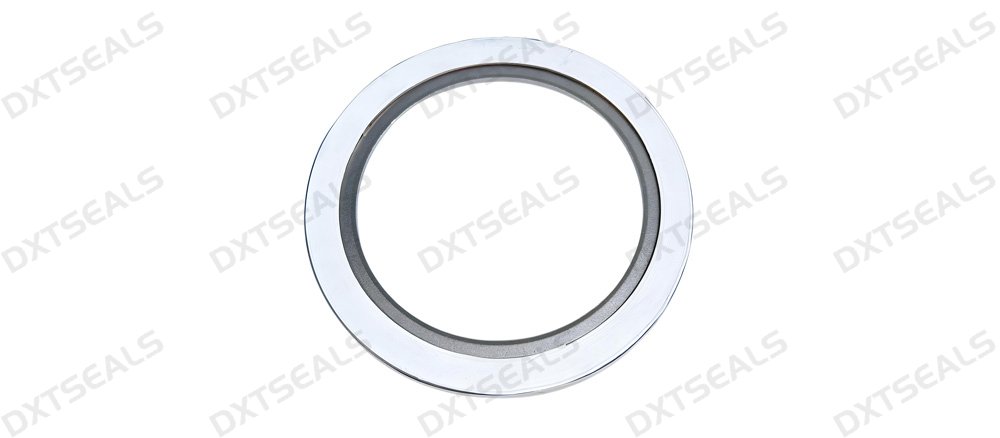Introduction
Flange gaskets are essential components in many industrial systems, providing a reliable seal between flanged connections to prevent leakage. The material of the gasket plays a significant role in its performance, durability, and compatibility with various fluids and gases. In this article, we will explore the different materials used in flange gaskets, their unique properties, and the best applications for each material. Whether you're dealing with high temperatures, chemical exposure, or high-pressure environments, understanding these materials can help you select the right gasket for your needs.
1. Metal Gaskets
Overview
Metal gaskets are made from durable metals such as stainless steel, Inconel, titanium, or copper. These gaskets are designed to withstand extreme high-pressure and high-temperature conditions, making them a popular choice in industries like oil and gas, petrochemicals, and power generation.
Advantages
- High strength and durability under extreme conditions
- Excellent temperature resistance and pressure tolerance
- Suitable for applications where chemicals or extreme temperatures are present
- Long-lasting and requires minimal maintenance
Best Applications
- Oil and gas pipelines
- Petrochemical processing
- Power plants
- Heavy-duty industrial systems
Types
- Spiral wound gaskets: Provide excellent sealing performance under varying pressure and temperature.
- Ring-type joint (RTJ) gaskets: Commonly used in high-pressure applications, providing a strong, reliable seal.
2. Rubber Gaskets
Overview
Rubber gaskets are versatile and commonly used for sealing in a wide range of applications. Made from materials like NBR (Nitrile Rubber), EPDM, Viton, or Silicone, these gaskets offer flexibility and resilience. Rubber gaskets are ideal for sealing in low to medium-pressure environments and are often used in HVAC systems, automotive applications, and food processing.
Advantages
- Excellent flexibility and elasticity for easy installation
- Provides a reliable seal against water, air, and dust
- Good chemical resistance, especially for oils and gases (depending on the rubber type)
- Suitable for a wide temperature range depending on the rubber material
Best Applications
- HVAC systems
- Automotive sealing
- Food and beverage processing
- Water treatment plants
Types
- Nitrile rubber (NBR): Ideal for sealing oils and fuels.
- Viton: Excellent for high-temperature and chemical-resistant sealing.
- Silicone: Best suited for low-temperature environments.
3. PTFE Gaskets (Polytetrafluoroethylene)
Overview
PTFE gaskets are made from the high-performance plastic known as polytetrafluoroethylene, which is renowned for its chemical resistance and non-reactivity. PTFE gaskets are frequently used in chemical processing, pharmaceuticals, and food industries where exposure to aggressive chemicals or high temperatures is a concern.
Advantages
- Outstanding chemical resistance to acids, bases, and solvents
- Non-stick properties make them ideal for food and pharmaceutical industries
- Thermal stability can withstand both high and low temperatures
- Non-reactive, preventing contamination of sensitive environments
Best Applications
- Chemical processing plants
- Pharmaceutical manufacturing
- Food and beverage industries
- Semiconductor manufacturing
Types
- Pure PTFE gaskets: Suitable for highly aggressive chemicals.
- PTFE with fiberglass reinforcement: Offers higher strength and pressure resistance for more demanding applications.
4. Compressed Fiber Gaskets
Overview
Compressed fiber gaskets are made from fiber materials such as aramid, asbestos-free fibers, and rubber binders. These gaskets are typically used in medium-pressure applications where high temperatures and chemical exposure are not as severe. Compressed fiber gaskets are often found in industrial machinery, automotive systems, and piping systems.
Advantages
- Cost-effective compared to metal or PTFE gaskets
- Can withstand moderate temperatures and pressures
- Offers good sealing properties for non-critical applications
- Easy to handle and install
Best Applications
- Automotive systems
- Industrial machinery
- Piping and plumbing
- General sealing tasks
Types
- Aramid fiber gaskets: Known for their strength and heat resistance, often used in engine systems.
- Graphite fiber gaskets: Suitable for high temperatures and moderate pressure systems.
5. Graphite Gaskets
Overview
Graphite gaskets are made from flexible, high-temperature-resistant graphite sheets. They are commonly used in high-temperature and high-pressure environments where metal gaskets are impractical due to their rigidity. Graphite gaskets can form tight seals under extreme conditions and are commonly used in applications involving steam or hydrocarbon fluids.
Advantages
- Excellent thermal conductivity
- Extremely high temperature resistance (up to 900°C or more)
- Can form seals under extreme pressure and temperature fluctuations
- Non-corrosive and resistant to chemicals
Best Applications
- Power generation plants
- Petrochemical and chemical processing
- Marine and shipbuilding industries
Types
- Flexible graphite gaskets: Used for high-temperature and high-pressure sealing.
- Graphite with metal inserts: Provides enhanced strength and sealing efficiency in extreme conditions.
6. Choosing the Right Flange Gasket Material
Selecting the appropriate flange gasket material depends on several factors, including temperature, pressure, chemical exposure, and application type. Here’s a quick guide to help you choose the right gasket for your needs:
- For high-pressure, high-temperature applications: Choose metal, graphite, or PTFE gaskets.
- For moderate-pressure applications: Rubber and compressed fiber gaskets are often sufficient.
- For chemical resistance: Opt for PTFE, graphite, or metal gaskets with corrosion-resistant properties.
- For cost-effective solutions: Compressed fiber gaskets offer a good balance of performance and cost.
Conclusion
Flange gaskets are essential for ensuring a leak-free seal in a variety of industrial systems. By understanding the properties and benefits of different materials such as metal, rubber, PTFE, compressed fiber, and graphite, you can make an informed decision about which gasket material is best suited for your application. Choosing the right material not only ensures reliable sealing performance but also helps improve the efficiency, safety, and longevity of your system.

